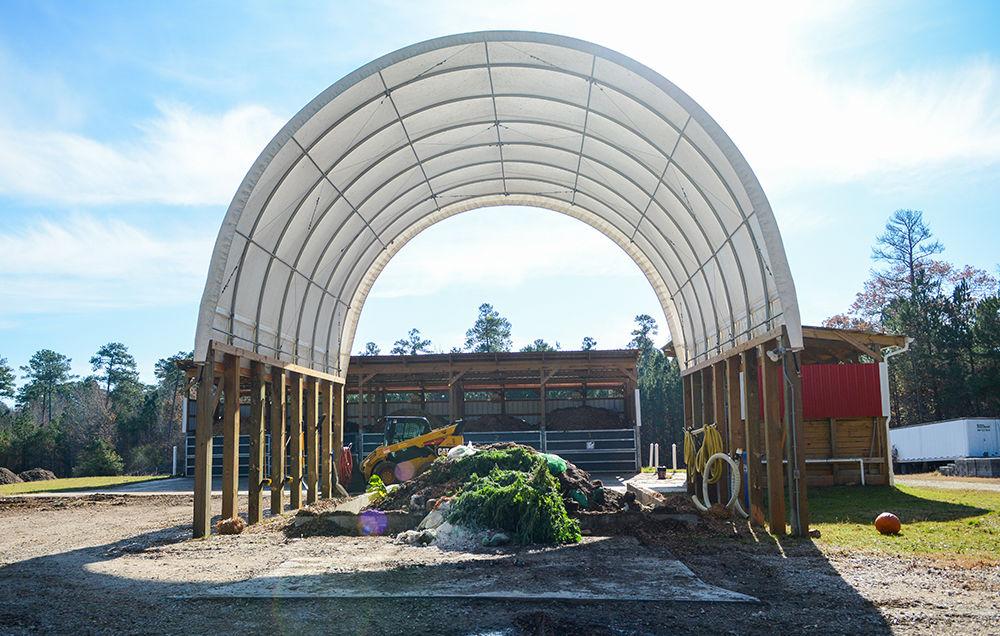Waste Reduction & Recycling recently created the NC State Compost Facility and Research Cooperative. This facility, located on NC State’s campus off of Lake Wheeler Road, aims to create a closed-loop organic waste management system as a part of the university’s Sustainability Strategic Plan.
According to Waste Diversion Coordinator Adam Bensley, NC State previously sent its organic waste, or compost, to a commercial composter in Chatham County, about an hour’s drive from campus. Now that the product is produced at the Compost Facility and Research Cooperative, it can be used on campus in landscaping, at the Agroecology Education Farm and in research.
“Now that we have the facility open, we don’t have to take all the material an hour each way to be composted, and we also don’t have to buy compost back,” Bensley said. “By not having to truck it all the way down there and pay someone to process [organic waste], we can do it more cost efficiently ourselves.”
After a feasibility study was done in 2015, the on-campus compost site started development in 2016, according to Bensley.
The site has been functional since July 2019, but the official open house is planned for April 2020. Bensley said construction of the facility is being funded by NCSU Facilities*, but also received grants from Wake County as well as the NCSU Student Sustainability Fund.
“We see waste as being a resource, whether that waste is recycling or whether it’s organic waste,” Bensley said. “It’s something that you can use to make a new product.”
Compost Facility Operator Matt Ball said compost is delivered to the receiving bay 2-3 days a week, including food waste and animal bedding from the veterinary school. The new campus standard is to have compost collections in all new buildings on campus, in locations like Fitts-Woolard Hall, the Plant Sciences Building and the Creamery Café, according to Bensley.
“It closes the loop,” Bensley said. “Take the Agroecology Farm, for instance; you have produce being grown for the dining hall and the restaurants on campus, and then you have scraps that are produced that go into compost, and then all the other organic waste goes into the compost, then we process it on campus, and it’s used back on campus.”
According to Ball, Advanced Composting Technologies designed and built the aerated static pile system, which supplies oxygen to the pile in order to speed up the composting process. The entire turnaround time from organic waste to a useable product is three months.
“We plan on incorporating the facility into a lot of coursework and research work, having students and faculty heavily involved with that,” Bensley said. “It’s not just a waste management facility; it is a living, learning laboratory … As a land-grant institution, we want to be able to take this technology and extend it out across the state to teach other people how to do the same thing.”
*Editor’s note: The article has been updated to clarify funding sources for the compost facility.








